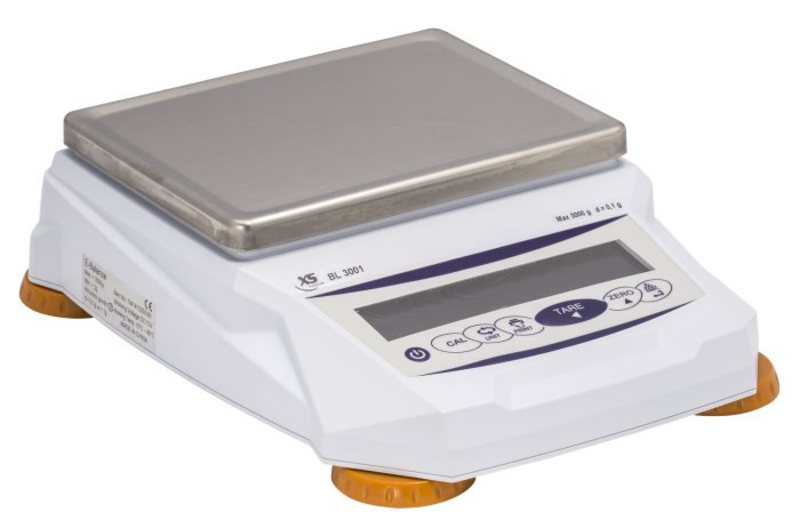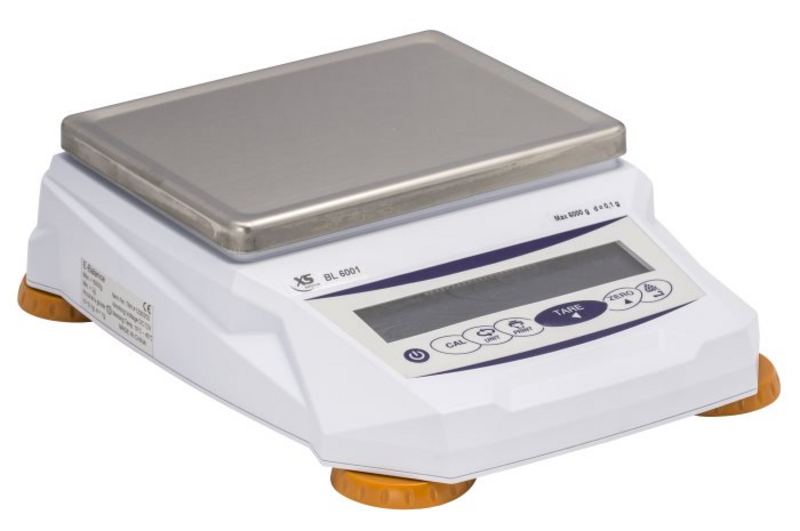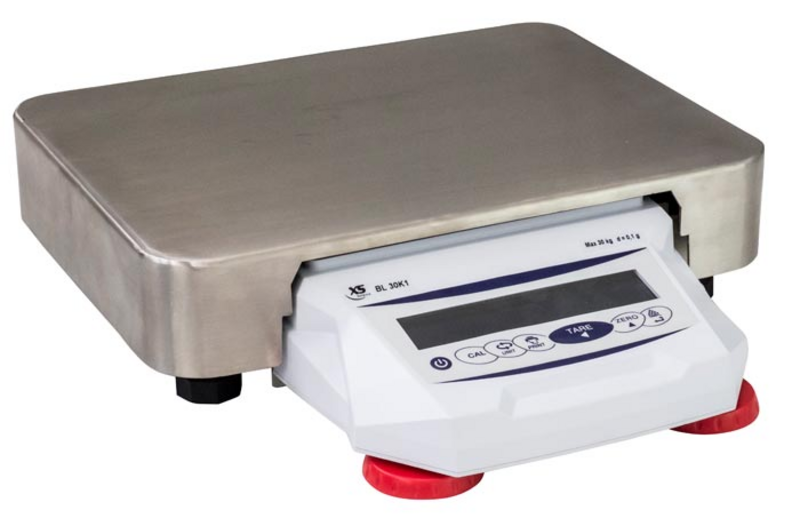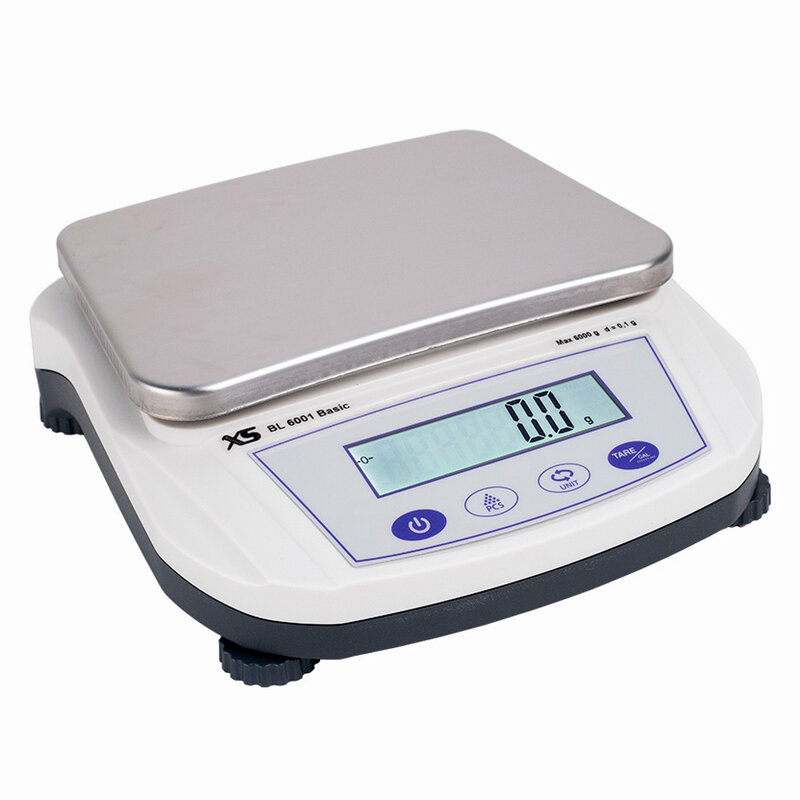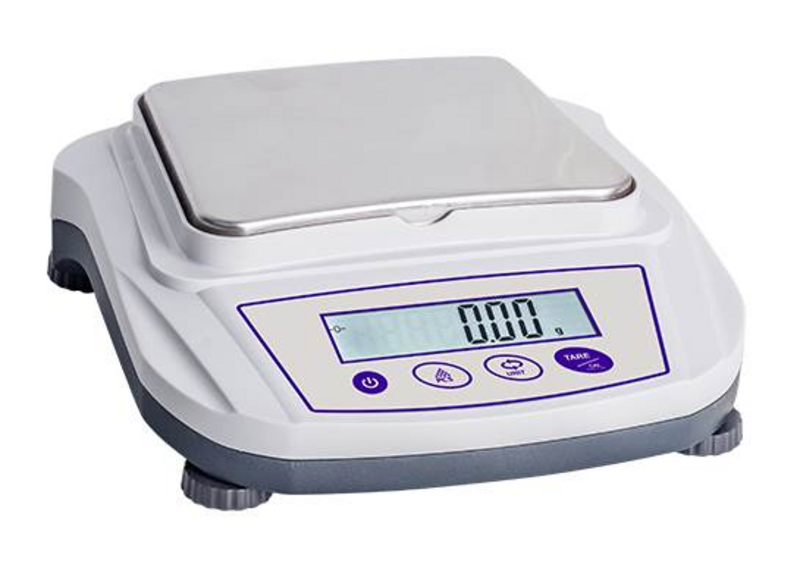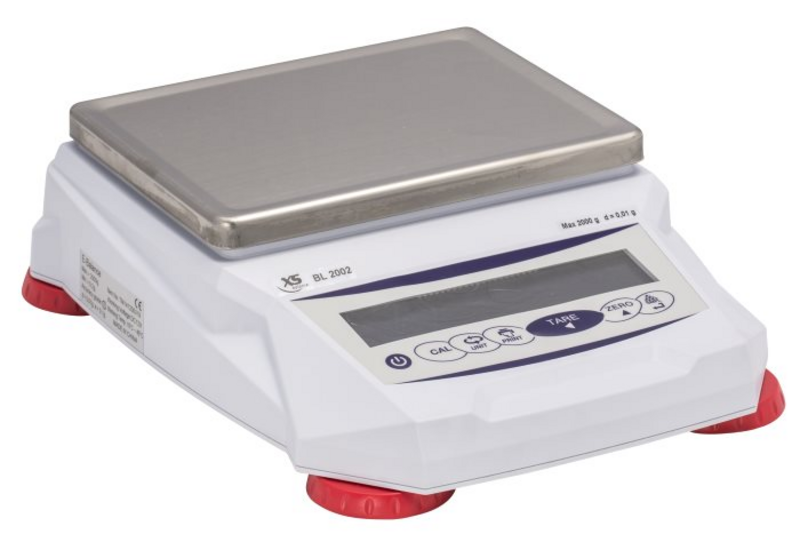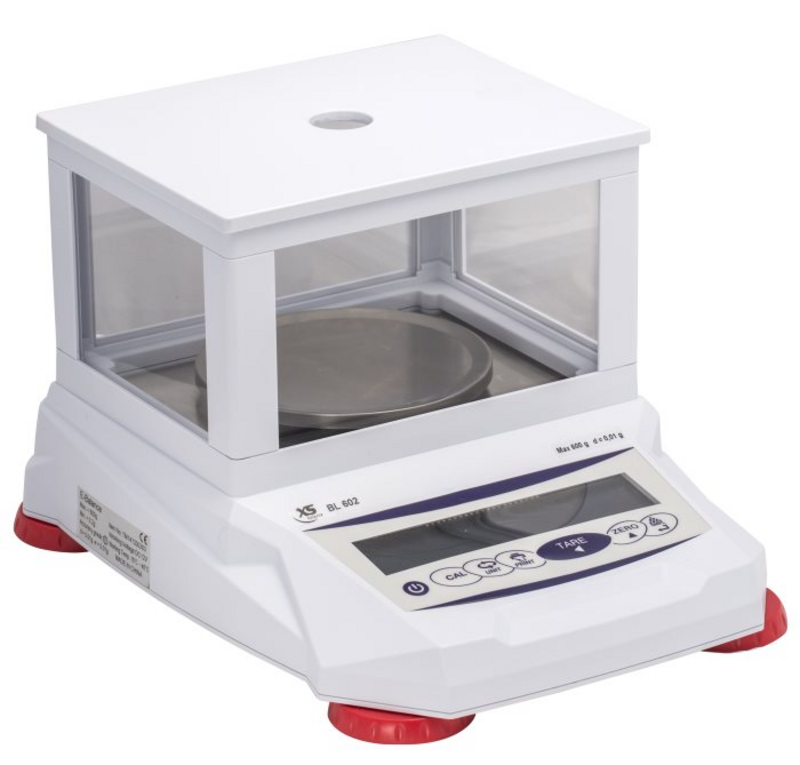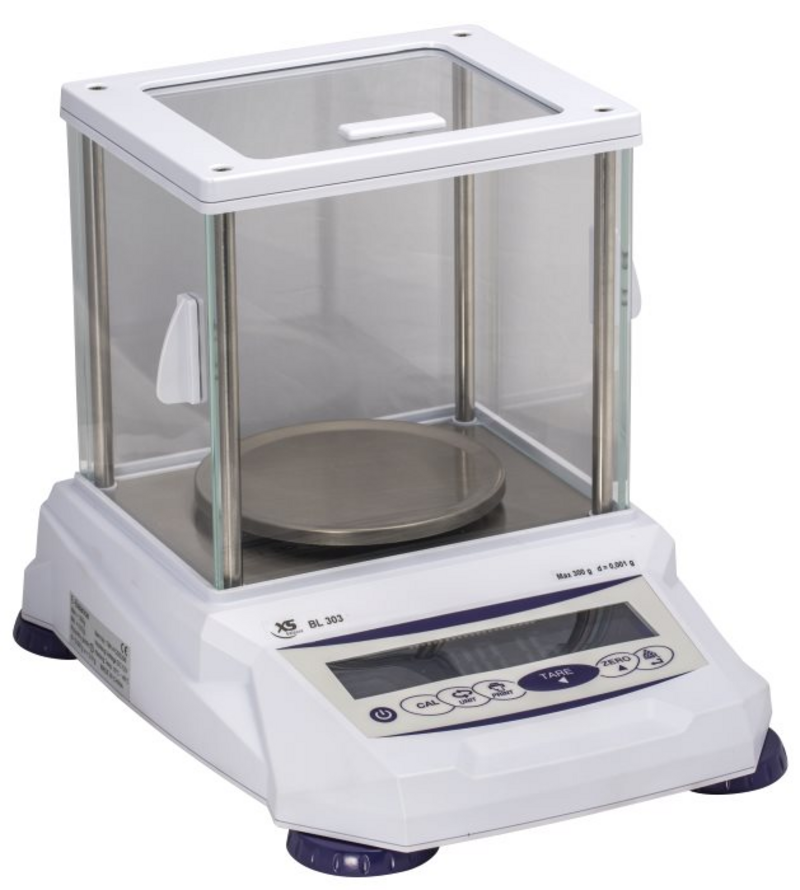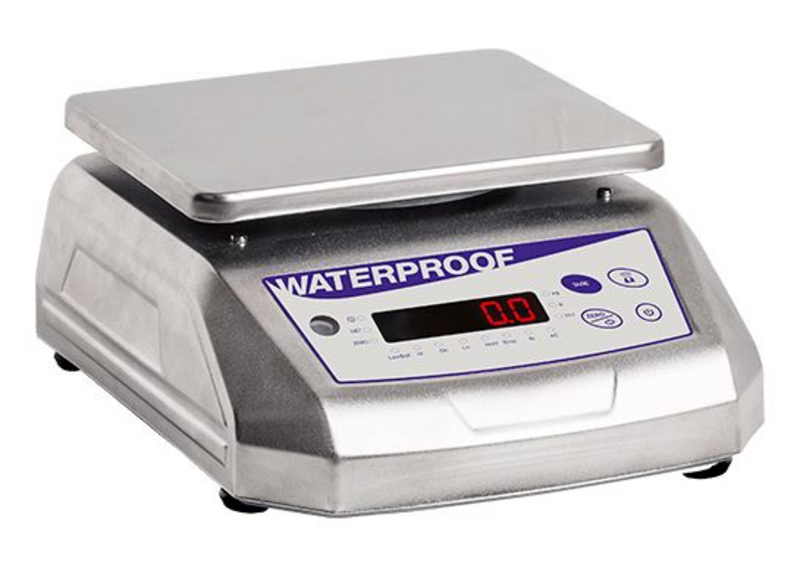Scales
XS BALANCE: PRECISE AND RELIABLE MEASUREMENT The scale is the instrument for weighing, that is, determining the mass, of a sample. It should be kept in mind that weight and mass are two different physical quantities. The main difference is that mass corresponds to the amount of matter of which an object is composed. Weight (or weight force), on the other hand, is the value of the force with which mass is attracted toward the center of the earth. Since gravity varies at different “angles” of the planet, the difference between weight force and mass becomes relevant in calibrating scales with a certain accuracy. For this reason, calibration is recommended immediately after installation at a particular location. The main characteristics of a scale are: - Division: indicates the smallest change in mass that the instrument can detect; - Capacity: represents the maximum load the scale can carry; - Reproducibility (or accuracy), which indicates the agreement of repeated measurements of the same object; - Linearity: expresses the maximum weighing error that can be observed over the entire measuring range. The XS Balance range includes 3 macro families: Analytical scales: 0.0001 g division, with a range of 220 g; Technical scales: division 0.001g to 0.1g, with a capacity of 300 g to 6 kg; Industrial scales: division from 1g to 10g , with a capacity of up to 100 Kg.



